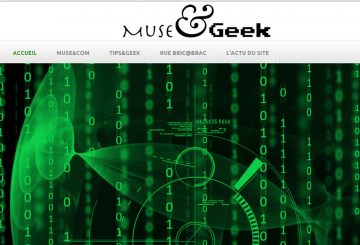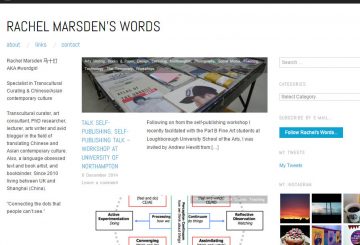 Introduction
Introduction
I had the pleasure to meet Greame Denton on Chilwell Road, during the 2014 Oxjam Music Festival in Beeston, Nottingham. I was caught by his presentation of his beers, “from the notebook” beer producing company, in particular because of their specialty: they are not (by my taste) good, they are also “wildlife-inspired”.
 Can you explain more thoroughly the based concept of your beer producing company?
Can you explain more thoroughly the based concept of your beer producing company?
The basic concept for the formation of the company was to produce beers with a wildlife theme. The original idea stemmed from my visits to Northumberland on holiday and in particular, visits to the Farne Islands to see nesting seabirds during the summer breeding season. The beer which started it all off was “Puffin”, since Puffin merchandise is readily available for tourists to buy. In other tourist shops, one could buy local ales in bottles, so I just envisaged the two together, a Puffin related tourist gift in beer form. Gift packs are always a popular purchase, so there was a requirement to produce other beers alongside “Puffin”. Thus the idea to produce a range of similar companion beers in a theme took form. As a biologist by training and someone who really enjoys seeing the birds in the wild, I am acutely aware that their habitats are under increasing pressure and there is a need to engage people in conservation of the environment. Thus I wanted the birds that were depicted on the bottle labels in some way benefit from the sale of the beers. The logical step to ensure this was to align the sale with a charity royalty. The charity chosen has to have some kind of connection with creatures displayed on the products. Since the first series was based on seabirds, it seemed a good idea for those engaged in the conservation and protection of the seas, the Marine Conservation Society, to benefit from sales, so that these revenues could assist their work in protecting the likes of Puffins. Luckily, they could not have been more supportive, including right from the start when the only thing I had to show them was a general idea of what I wanted to do along with some early images of the proposed products on a computer.
 The original partner brewery was chosen primarily by its location in Northumberland (since these beers were inspired by the wildlife of Northumberland) and from the fact that this brewery, Allendale already produced other bird-themed beers e.g. Golden Plover and Black Grouse. Again this was a good fit for what we wanted to do and again, Allendale were very supportive from the outset.
The original partner brewery was chosen primarily by its location in Northumberland (since these beers were inspired by the wildlife of Northumberland) and from the fact that this brewery, Allendale already produced other bird-themed beers e.g. Golden Plover and Black Grouse. Again this was a good fit for what we wanted to do and again, Allendale were very supportive from the outset.
The benefits from the collaboration are many fold. Utilising the expertise of well-regarded and skilful, award–winning brewers, means that the production of a quality product is assured. Their knowledge of the brewing and bottling process means that the collaborative effort between ourselves and the brewers in terms of idiosyncratic beer design in enhanced. Also, the brewery benefits by associating themselves with our brand and charitable donations through brewing for us. We can sell the product in places remote from the locality of the brewery since we associate ourselves with UK wide and potentially global charitable entities, opening up more potential markets for the brewery. This helps to introduce the breweries product to a much wider audience and therefore can have benefits on the ales of their own brand of beers.
With Colin Bowler you created “from the notebook” two years ago but, you both, come from two professional fields really different (you were Cancer researcher and Colin Bowler, financial advisor). How did you become beer-so-intimated-linked-with-flying-beats (except for the hedgehog autumn beer) makers?
 I have been a member of CAMRA for a number of years and have a keen interest in trying out new beers. The “craft beer” market has exploded over the past few years with new and interesting beers being produced by clever and innovative brewers. I had some background of the fermentation process through my work as a cancer researcher, where I engineered proteins for tumour targeting use through both eukartyotic (using yeast) and prokaryotic expression systems. I transferred some of this basic knowledge to setting up and producing home-brewed beers in my garage. However, it quickly became evident that it was going to take me a long time to develop beers for market using this process and I was worried that my idea for the beer brand was such a good idea that I had to get on and do it. With money that I had obtained through a redundancy settlement I decided to go for it and put all of my savings into setting up and running the new company. It was one of those “now or never” type moments and hopefully my gamble will eventually pay off. I cannot speak for Colin, only in as much as we had been friends for a long time and enjoyed a pint or two together over the years. Colin is a wildlife enthusiast (especially butterflies and birds) so he was the perfect partner for the business, bringing together his knowledge of wildlife to my knowledge of beer.
I have been a member of CAMRA for a number of years and have a keen interest in trying out new beers. The “craft beer” market has exploded over the past few years with new and interesting beers being produced by clever and innovative brewers. I had some background of the fermentation process through my work as a cancer researcher, where I engineered proteins for tumour targeting use through both eukartyotic (using yeast) and prokaryotic expression systems. I transferred some of this basic knowledge to setting up and producing home-brewed beers in my garage. However, it quickly became evident that it was going to take me a long time to develop beers for market using this process and I was worried that my idea for the beer brand was such a good idea that I had to get on and do it. With money that I had obtained through a redundancy settlement I decided to go for it and put all of my savings into setting up and running the new company. It was one of those “now or never” type moments and hopefully my gamble will eventually pay off. I cannot speak for Colin, only in as much as we had been friends for a long time and enjoyed a pint or two together over the years. Colin is a wildlife enthusiast (especially butterflies and birds) so he was the perfect partner for the business, bringing together his knowledge of wildlife to my knowledge of beer.
 What are your daily challenges and your prospective for next times?
What are your daily challenges and your prospective for next times?
As with any small business, cash flow is always an issue. On limited resources, we have to manage when we brew and work within schedules governed by the brewery’s own requirements. We are on the lookout for distributors of our products, so that I don’t have to travel long distances to make deliveries. In this way I would be able to orchestrate the rest of the business needs more efficiently. Staying focussed and sticking to plans set in place is a challenge. I have so many ideas for the business that sometimes I have to actively encourage myself to be more disciplined and not get too far ahead of myself. Being new to this type of business is a steep learning curve but hopefully I can learn from my mistakes so that more and more decisions I take in the future are the right ones which allow the business to flourish. I feel that our branding is strong and that we make excellent products, so hopefully more people who get to taste our beers whilst helping wildlife conservation will spread the word and we can sell more beer. The more we sell, the bigger the benefits to the wildlife we support.
Links
- from the notebook website
- Marine Conservation society
- Butterfly Conservation
- British Dragonfly society
- People’s Trust for Endangered Species




You must be logged in to post a comment.